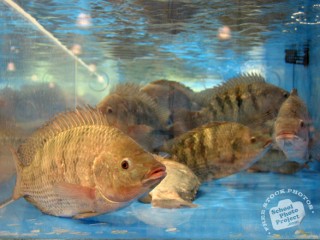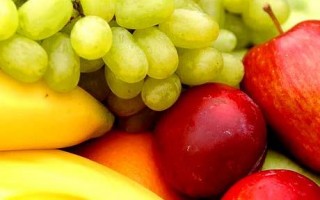This Sunday February 26, 2012 at 7 PM Eastern and 4 PM Pacific time, we will continue with our new “You Decide” radio talk show featuring a wonderful guest host, the very talented actor, Mr. Josh Blacker.
This special guest announcement we share with you is what the theme of the program will be all about; vegetarianism, a subject dear to Josh Blacker and recently I found this subject fascinating myself.
On Sunday afternoon, we will explore the benefits being a “Vegan” can bring to your life, as well as ethical reasons to consider this different life style choice.
I began this article thinking that vegetarians are all closet hippies with some odd ideas about animals and the environment. After all, I live in the province of Alberta in Canada – cattle country. To be clear, most people are meat eaters where I live in Alberta, Canada.
“Albertans” are tough ranchers and wheat farmers with a strong pioneer spirit. Many people also work on oil rigs. You know the type; they work hard and play hard. These people are used to a rough life, working outside in weather that would make most people run for the tropics. We are people who endure a harsh life. Eat vegetarian? That is blasphemy in Alberta.
Then I did some research and selected a Van Morrison song “And It Stoned Me!”
Why do people choose to become vegetarians, anyway? According to people who have made that leap, there are a variety of reasons:
Dietary Preferences:
Other people become vegetarian because they do not like the taste or texture of meat. Some give up meat for health reasons such as the fact that meat is often injected with hormones or preservatives, or because meat is high in cholesterol. Vegetarians supposedly live longer, need less sleep, and have lower risks of many major illnesses like cancer and heart disease. Many vegetarians also claim to have more energy and are able to concentrate better.
Fish and seafood are the most consumed forms of protein on the planet. Many people in the west are turning to fish as a more healthful form of protein than red meat or pork. Fish has also become a go-to staple for Canadians who want to have a healthy diet. So it may come as a surprise to learn that eating farmed tilapia, a widely consumed fish that has been steadily growing in popularity, may be no better than dining on bacon, hamburgers or doughnuts. New U.S. research has found that farmed tilapia have low levels of omega-3 fatty acids – and surprisingly high levels of potentially detrimental omega-6 fatty acids.

It is a finding that could have serious implications for people who suffer from arthritis, asthma and other illnesses or allergies because the omega-6 fatty acids may cause inflammation, which can damage blood vessels and vital organ tissue, according to the findings, published in last month’s Journal of the American Dietetic Association. Omega-6 fatty acids are considered to be essential and must be obtained through diet because they can’t be produced by the body. But consuming too much omega-6 can contribute to cancer, asthma, depression and heart disease, among other ailments.
“Ten years ago, people wouldn’t even know what the word tilapia meant,” said Robert Ackman, professor emeritus in food science and technology at Dalhousie University, who studied fats and oils in fish. “It’s on the tabletops here in Nova Scotia for heaven’s sakes. It is a popular food that’s been written up in food magazines. People come in and ask for it.
For individuals who are eating fish as a method to control inflammatory diseases such as heart disease, it is clear from these numbers that tilapia is not a good choice,” according to a study conducted by researchers from the Wake Forest University School of Medicine in North Carolina. The study singled out tilapia raised on fish farms as having high levels of the potentially dangerous omega-6 fatty acids. Although researchers didn’t compare farmed tilapia with wild tilapia, they noted significant discrepancies between farmed tilapia and other types of farmed fish.
It seems that when people begin messing with out food to improve the benefits to humanity, we cause more harm than good. Is it any wonder that more and more people are looking at vegetarianism as a healthier choice.
Religious Reasons:

Vegetarianism is also an element of religions like Hinduism and Buddhism. For those who hold to these beliefs, living a vegetarian lifestyle is a way of life that advocates nonviolence and is part of spiritual fulfillment. Other religions that promote vegetarianism are Seventh Day Adventists and Jains. While their dietary beliefs are similar to that of Buddhists and Hindus in that kindness to all living thing is returned in kind,
Jains believe in the strictest form of vegetarianism. Vegetarianism is regarded as a way to peaceful coexistence with all living beings. Of course, the Jain diet does require harming plants, but it is done only out of necessity. Jains strive to minimize the amount of violence used in providing for their dietary needs. Even some plants that sustain other living beings, such as roots and some fruits, are eliminated from the Jain diet.
According to Hinduism, food is the source of the body’s chemistry, and what we ingest affects our consciousness, emotions and experiential patterns. If one wants to live in higher consciousness, in peace and happiness and love for all creatures, then he or she cannot eat meat, fish, shellfish, fowl or eggs. By ingesting the grosser chemistries of animal foods, one introduces into the body and mind anger, jealousy, anxiety, suspicion and a terrible fear of death, all of which are locked into the the flesh of the butchered creatures. For these reasons, vegetarians live in higher consciousness and meat-eaters abide in lower consciousness.
Environmental Reasons:

A smaller number of people become vegetarian because of the impact that eating meat has on the environment. For examples, farmers deforest land to create more grazing lands, or vegetarians may cite the amount of grain fed to produce animals for food. This grain could be used to feed thousands of people.
According to a 2006 report by the United Nations Food and Agriculture Organization (FAO), “our diets and, specifically, the meat in them cause more greenhouse gases carbon dioxide (CO2), methane, nitrous oxide, and the like to spew into the atmosphere than industry”. (Greenhouse gases trap solar energy, thereby warming the earth’s surface. Because gases vary in greenhouse potency, every greenhouse gas is usually expressed as an amount of CO2 with the same global-warming potential.)

Proponents of vegetarianism argue that water consumption is increased while producing meat. The use of drugs to ensure healthy animals is also higher. Animal waste entering lakes and rivers creates pollution and kills fish. In his article “Making Every Drop Count”, published in the February 2001 issue of Scientific American, Peter H. Gleick states that “Growing a pound of corn can take between 100 and 250 gallons of water…But growing the grain to produce a pound of beef can require between 2000 and 8500 gallons.” According to Dr. David Brubaker, PhD, at Johns Hopkins University’s Center for a Livable Future, “The way that we breed animals for food is a threat to the planet. It pollutes our environment while consuming huge amounts of water, grain, petroleum, pesticides and drugs. The results are disastrous.”
“Nothing will benefit human health and increase the chances of survival of life on earth as much as the evolution to a vegetarian diet.”
Now wait a minute, eat “meat free”, and save the environment? On the surface, this makes sense. But we are forgetting something important. What about the fuel used to transport food from one part of the planet to another? Maybe we should take a closer look. I love bananas. They are full of potassium and other vitamins that add to my healthy diet. But they are not grown in Canada. In fact, they are not grown in the continental United States, the United Kingdom or Europe. They come from tropical areas of the planet; Central America, the Caribbean, India and Asia.
Each banana travels an average of 1500 miles from source to your table. The cost of fuel to move fruit and vegetables from one part of the globe to another can be measured in the tens of millions of dollars every year. The production of carbon monoxide from the fuel expended from these sources is also frightening. Over fishing contributes to the death of other sea creatures caught in abandoned fishing nets. The Japanese government has begun the practice of harvesting dolphin meat to replace shortages of traditional fish in the diets of their people. The problem with this is that dolphin meat is now extremely tainted with mercury, thanks to the effluent dumped into the ocean by Japanese industry. They are poisoning themselves with a food source that is not part of their traditional diet.
This does not mean that I would continue eating meat, secure in the knowledge that vegetarians are also contributing to global warming. Instead, my research provided me with another possibility; I could buy locally produced food. Sure, I might have to reduce the number of bananas that I buy, but my food would be fresher, and I might even get to know the farmers who produce it.
Ethical Reasons:
One reason people decide to become vegetarian is because they learn about how animals raised for food are treated and forced to live in overcrowded, inhumane conditions before the slaughtering process. For example, chickens are obligated to live in very small cages and are de-beaked. People who believe this is wrong and don’t want to support these abhorrent practices choose a vegetarian lifestyle for ethical reasons. Vegetarians known as vegans choose to not only give up meat but take it a step further. In their efforts to protect animals from being raised for food, they give up all animal products including:
Yeast
Wearing wool or leather
Dairy products including milk, cheese, butter and eggs

Besides the health aspect of going vegetarian, the second reason for me would be due to the unethical treatment of animals on factory farms. During my research, I’ve discovered that animal mistreatment can be found in every western country. In fact, not only are some farm labourers abusing animals, but states in the U.S such as Iowa, Minnesota and Florida are actually passing laws to prohibit photography of these abuses on their property.
Examples of abuse of farm animals are rampant on the internet. Yet, we consumers choose to look the other way. Have you ever had a Butterball turkey for Thanksgiving?
If you read this PETA Investigation, you may never want to buy a turkey with the Butterball brand again. Do you wear leather? Stella McCartney will not use leather in her fashion designs. Click here to read why.
I am actually quite surprised at my change in attitude toward eating meat. Since I value my health and I do not want to contribute to animal cruelty, my plan is to try to avoid consuming meat products for 30 days.
At the end of the 30 days, I will make a decision either to continue a vegetarian lifestyle or to return to my old meat eating habits. However, I have become much more aware of animal cruelty in the meat industry. And, living longer while feeling better is a bonus. Has this become a “no brainer” for me? I will let you know.
 Thanks to Kenn for staging the video in this post for me, and thanks to you for stopping by WormholeRiders News Agency!
Thanks to Kenn for staging the video in this post for me, and thanks to you for stopping by WormholeRiders News Agency!
Please feel free to leave a comment here, click an icon below to share this interview, or you can visit and follow me on Twitter by clicking on my avatar to the right.
Regards,
Thank you.
ArcticGoddess1 (Patricia)


